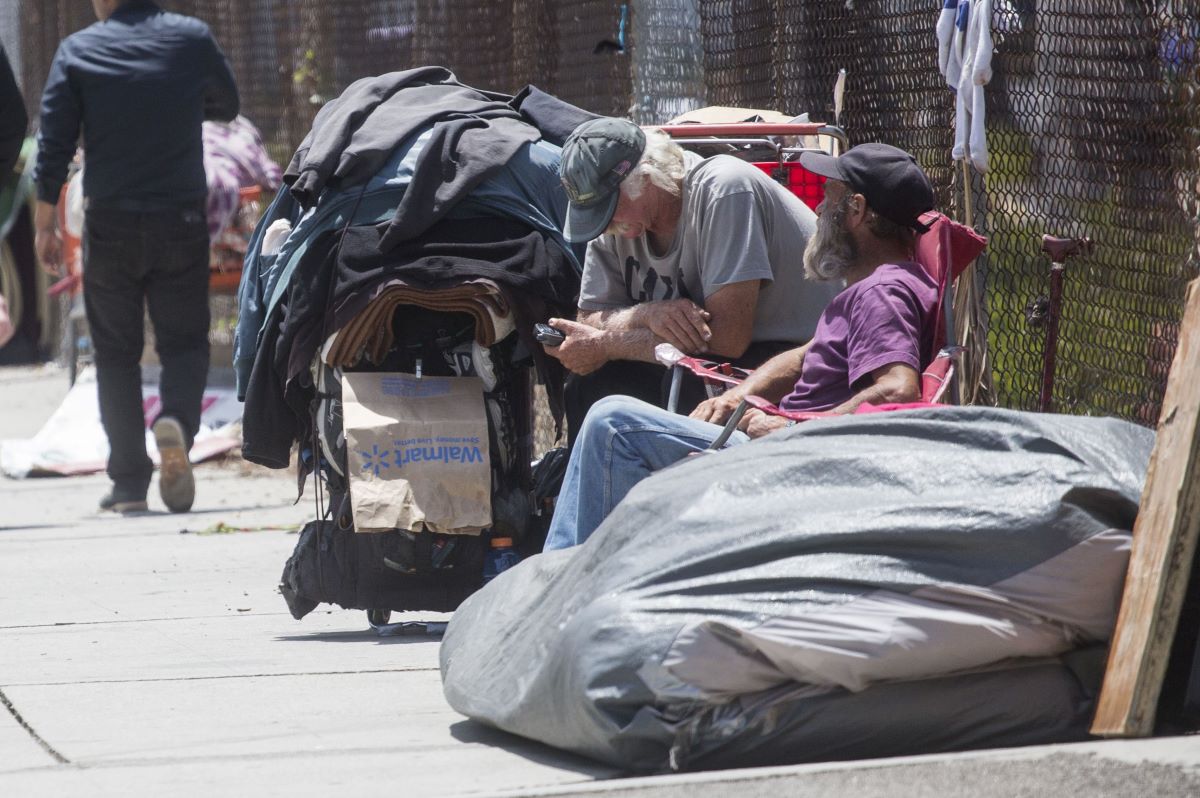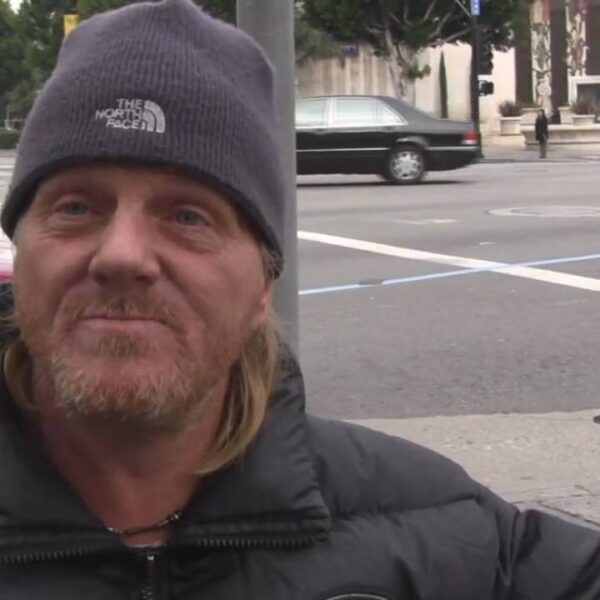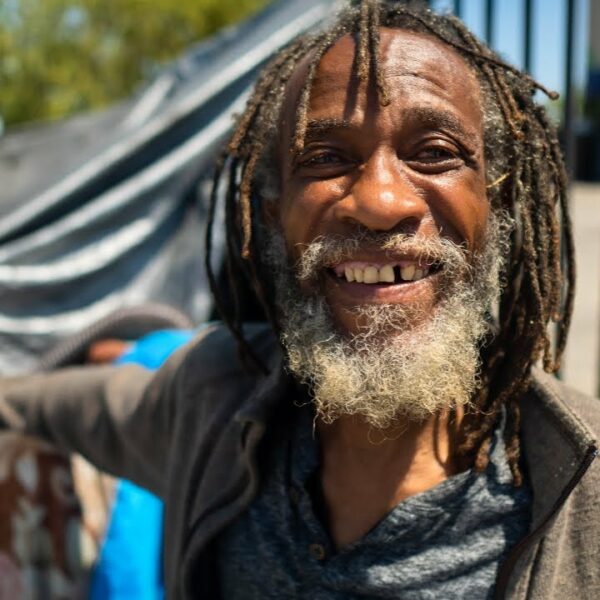Earlier this month, officials announced that veteran homelessness dropped 11 percent between 2020 and 2022. But Los Angeles, once called the homeless capital of the US, seems to have missed the memo.
In a lawsuit filed on behalf of 14 veterans experiencing homelessness against the Department of Veterans Affairs, attorneys for the plaintiffs say that the VA’s Greater Los Angeles Healthcare System’s (VAGLAHS) plans for the West Los Angeles Medical Center (WLA) and Community Living Center Campus are woefully inadequate.
“The federal government consistently refuses to keep its word and take meaningful actions to bring the abomination of veteran homelessness to an end,” the complaint states. “The VA must do more, and now, to comply with its obligations under the law, and to fulfill the promise we all make to those who serve in our military.”
According to the filing, there are 3,458 unhoused veterans in Los Angeles County, representing 10 percent of the national total. Many suffer from traumatic brain injury (TBI) and serious mental illness, including PTSD, schizophrenia, and severe depression. But it’s nearly impossible for many vets to access necessary services.
The VA has failed its clients in that regard, the suit alleges.
“The VA and its constituent healthcare systems do not provide adequate Permanent Supportive Housing to ensure that veterans with severe disabilities in Los Angeles have the stability and support they desperately need to access the medical treatment and other services for which they are eligible,” the complaint reads. “Instead, the VA provides institutional services and temporary housing, leaving veterans with Serious Mental Illness and TBI who could live in community-based Permanent Supportive Housing with no options but to accept institutionalization [in jails, mental institutions or drug treatment centers] or go without services. As a result, the VA remains a principal cause of continuing homelessness among veterans.”
The complaint also charges that limited space on the WLA Campus is being used to provide substandard temporary housing while the rest is being leased out to agencies that don’t help the vets.
“Veterans must console themselves with the fact that they can park for free on where they should have homes,” the filing reads.
Land Designated for Soldiers’ Care Now Leased to UCLA, Private Companies
The 388-acre parcel on which the WLA Campus now sits was initially donated to the VA in 1888 with the caveat that it be used as a home for disabled veterans. Within 30 years, thousands of former soldiers lived in the former Sawtelle Veterans Home. In 1927, it was renamed the Wadsworth Hospital, and by the 1960s, the facility was providing medical care rather than residential beds. By 1977, all of its permanent residents were gone.
The site fell into disrepair until a lawsuit was brought against the VA in 2011. In that suit, the precursor to the current action, ten veterans demanded that the VA provide permanent housing at the facility. They were represented by public interest attorney Mark Rosenbaum, one of the attorneys behind the current suit.
That case ended with a good faith agreement in 2015 in which the VA agreed to create a Master Plan to provide housing and services on the campus. The plan included 1,200 units of Permanent Supportive Housing (PSH), with 770 to be completed by 2022.
But the VA failed to follow through.
According to a report by the VA’s Inspector General, just 54 PSH units were built by 2021. The campus’s infrastructure was still in a state of disrepair.
Meanwhile, the VA entered into leases with several organizations that offered no benefits to veterans. In 2018, another audit by the Office of the Inspector General found 11 of these leases to be noncompliant with the 2016 West Los Angeles Leasing Act.
The act required any agency entering into a real property lease or land-sharing agreement with the VA “principally benefit” veterans and their families. In addition to the noncompliant leases, which included deals with Breitburn Energy, a parrot sanctuary, a parking lot company, and UCLA’s baseball program, there were 14 others with either an expired lease or no documented agreement.
“We trusted the government to come through, and that turned out to be a grievous mistake for these vets,” Rosenbaum told NPR’s Anna Scott. “It was a disgrace, and it’s got to be corrected.”
Fifteen Plaintiffs Allege Deplorable Temporary Housing Conditions, Ask Again for Permanent Housing to Be Built
This action is also highly critical of the housing options the VA does provide for veterans.
The housing voucher program (VASH) meant to offer permanent housing is woefully insufficient; there aren’t enough vouchers, to begin with, and those that exist aren’t adequately distributed.
Those vets that can find permanent shelter are often forced to locate far away from VA services, sometimes several buses away. For many vets experiencing PTSD, including plaintiff Deavin Sessom, that’s not practical.
The filing accuses that, for all intents and purposes, this practice has “denied Plaintiffs meaningful access to VAGLAHS services solely because of their Serious Mental Illness.”
Conditions at the temporary housing offered at the WLA Campus, meanwhile, are described in the suit as appalling.
The tiny home sheds on so-called Veterans Row are “so institutional as to be carceral.” Plaintiffs complained of rats. There’s no running water or a shower, only “a shared foot pump sink by the portable bathrooms that was often empty and always filthy, and a shared water hose that sometimes worked.”
When Plaintiff Jessica Miles complained about the conditions, she was locked out of her shed by a social worker without warning. Even after regaining access, thanks to a social media outcry, the complaint remains on her record.
In September of 2022, a devastating fire caused by overheated lithium batteries broke out in the tiny home village. Residents tried to put it out with a hose, but without running water, they were unsuccessful. Only one security guard responded to residents’ calls for help.
It took 40 minutes for more help to arrive. By that time, 11 homes had been destroyed, and four more had been damaged. Plaintiffs Laurie Wright, Samuel Castellanos, and Deavin Sessom lost their homes and all of their belongings and said they’ve been offered little to no help from the VA to find additional shelter.
The 14 veterans named in the suit, along with the National Veterans Federation, are asking the VA to follow through on the pledges they made in the 2015 settlement agreement, as well as the recommendations of two subsequent reports from the Inspector General and two acts of Congress.
“Even under the VA’s most optimistic and recent plans, thousands of veterans will continue to live and die on the streets of Los Angeles for years to come,” the filing states. “These individual plaintiffs cannot access necessary VA medical and mental health treatment for which they are eligible and which they need to have a fighting chance at leading normal lives.”













